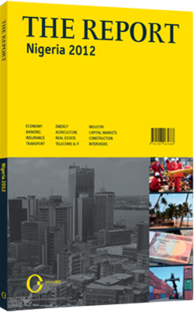OBG talks to Jason Njoku, Founder and CEO, iROKO Partners

Interview: Jason Njoku
What can be done to formalise online distribution of Nollywood films in Nigeria?
JASON NJOKU: Online distribution comes down to broadband penetration, which determines the viability of the market. Countries like the US, the UK, Canada, Germany and Italy, where many members of the African diaspora reside with access to fast internet, generate the most revenue. In five years, provided the broadband roll-out keeps pace, Nigeria will become Nollywood’s largest market. I have high hopes for Nigeria’s broadband capacity; access is already much better and affordable than five years ago, but we still have a major bridge to gap.
Nollywood has been poorly distributed since its inception. If you look at how content is monetised globally, the internet is the least valuable forum. The best avenues are the more established channels like cable networks, in-flight entertainment, DVD distribution, cinema, payTV and satellite. There is a whole raft of platforms that are not being monetised in Africa. By comparison, India’s Bollywood produces around 3000 movies per year, generating revenues of up to $3bn. Nollywood, which produces about 2000 movies per year, only brings in about $300m. The difference lies in the distribution.
How would you rate the interest from local sponsors for Nollywood productions?
NJOKU: We continue to experience challenges in this regard. In fact, the biggest local advertisers we work with today are other internet companies. Internet in Nigeria is not picking up as fast as it did in developed markets, so the majority of people do not see it as an everyday part of life, causing advertisers to stick to more traditional channels like print media, TV and billboards. We need an internet boom, but for that to happen we need to have the infrastructure in place first.
What role can foreign capital play in Nollywood?
NJOKU: I see trends developing along two lines. First, there is online distribution, which gradually creates awareness and attracts investors. We are also seeing more interest on the production side. The recent production of Chimamanda Ngozi Adichie’s Half of a Nollywood and foreign investors. If it does well and demonstrates that money can be made in Nollywood, it will pave the way for more foreign participation. Nollywood has not yet seen a sophisticated marketing push, but it has been able to sustain itself for decades, despite the lack of government support and inadequate infrastructure. Once established investors come into play and systematic marketing muscle is put behind it, the industry can skyrocket.
What is the current outlook for a consolidation of Nigerian production houses?
NJOKU: Nollywood has been dominated and driven by traders, most of whom operate with a short-term perspective, leaving the industry after one or two projects.
This is still the case, and to a large extent defines Nollywood’s unique character and part of its allure. Even though Western habits are filtering through into Africa and viewers increasingly demand quality over quantity, the level of consolidation is likely to remain limited.
For the industry to pool its resources, we need substantial improvements in production infrastructure. We need professional movie scenes, top-end equipment, digital transmission, etc. Once this is in place, I expect some production houses to merge to try to negotiate more capital-intensive deals with distributors.
In terms of viewers and content, what other African countries are potential markets or competition?
NJOKU: The obvious answer is Ghana, especially as it has more online viewers than Nigeria. Kenya and South Africa also are big content markets; in fact, about 42% of what is in circulation today comes from Kenya, which goes to show that what is generally known as Nollywood is really pan-African. Going forward, I believe these markets will develop in tandem with Nigeria, provided production infrastructure improves at equal rates.
You have reached the limit of premium articles you can view for free.
Choose from the options below to purchase print or digital editions of our Reports. You can also purchase a website subscription giving you unlimited access to all of our Reports online for 12 months.
If you have already purchased this Report or have a website subscription, please login to continue.

